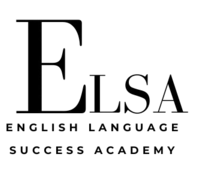Mastering the English language is akin to conducting a symphony – each skill (reading, writing, speaking, and listening) must harmonize to create a beautiful, cohesive whole. For many learners, the challenge lies not in improving a single skill, but in developing all four simultaneously. This article will guide you through the process of setting balanced goals and creating an integrated study plan to achieve holistic English proficiency.
Setting Balanced Goals Across Language Skills
The key to integrated language proficiency lies in setting balanced goals that address all four core skills: reading, writing, speaking, and listening. Here’s how to approach this:
- Assess your current level in each skill: Use standardized tests or self-assessment tools to gauge your proficiency in each area.
- Set specific, measurable goals for each skill: For example:
- Reading: “Read and comprehend a news article in 15 minutes by the end of the month.”
- Writing: “Write a 250-word essay with fewer than 5 grammatical errors within 30 minutes.”
- Speaking: “Give a 3-minute impromptu speech on a familiar topic with minimal hesitation.”
- Listening: “Understand 80% of a 5-minute podcast on current events without transcript aid.”
- Ensure goals are interconnected: For instance, your listening goal could involve taking notes (writing), which you then use to summarize the content orally (speaking).
- Allocate time proportionally: If you have 10 hours a week for study, consider dedicating 2.5 hours to each skill, adjusting as needed based on your priorities.
Strategies for Identifying and Prioritizing Weakest Skills
While balanced development is crucial, it’s also important to give extra attention to areas where you struggle most. Here’s how to identify and prioritize your weakest skills:
- Take a diagnostic test: Many language programs and exam preparation courses offer diagnostic tests that break down your performance by skill.
- Reflect on real-world challenges: Think about which aspects of English usage cause you the most difficulty in daily life or professional settings.
- Seek feedback: Ask language exchange partners, teachers, or native speakers to evaluate your performance across different skills.
- Use the “weakest link” approach: Identify your weakest skill and make it a priority. As it improves, your overall language proficiency will increase.
- Set “stretch” goals for weak areas: Allocate slightly more time and set more challenging goals for your weakest skills while maintaining development in others.
Creating an Integrated Study Plan
An effective study plan should address all language skills while emphasizing their interconnectedness. Here’s a framework for creating such a plan:
- Daily routine:
- 15 minutes of vocabulary study using spaced repetition
- 30 minutes of reading practice, followed by summarizing the content orally or in writing
- 20 minutes of listening practice, taking notes and then discussing the content
- Weekly schedule:
- Monday & Thursday: Focus on writing (essays, reports, emails)
- Tuesday & Friday: Emphasize speaking (presentations, debates, discussions)
- Wednesday & Saturday: Concentrate on intensive reading and listening comprehension
- Sunday: Review and integrate all skills through a mini-project
- Monthly goals:
- Complete one full-length practice exam (e.g., IELTS or TOEFL)
- Read one English book
- Write four essays on diverse topics
- Have three 30-minute conversations with native speakers
Setting Goals That Simulate Real-World Use or Exam Conditions
To ensure your language skills are practical and applicable, set goals that mirror real-life scenarios or exam conditions:
- For general English learners:
- Set a goal to understand 90% of a TV series episode without subtitles
- Aim to write a compelling cover letter for a job application in English
- Practice giving directions to a tourist in your city
- Set a target to read and summarize a research paper in your field of study
- For exam preparation (IELTS/TOEFL):
- Time yourself reading an academic text and answering comprehension questions within the exam time limit
- Practice writing essays under timed conditions on unfamiliar topics
- Record yourself answering speaking prompts within the allocated time
- Take full-length practice tests regularly to build stamina and familiarity with the exam format
Transitioning to Holistic Language Use Goals
As you progress, your goals should evolve from skill-specific to more integrated, holistic objectives. Here are some tips for making this transition:
- Set goals that combine multiple skills: For example, “Watch a 20-minute TED talk, take notes, write a summary, and then present the main ideas orally.”
- Focus on task-based goals: Instead of “improve vocabulary,” aim to “successfully negotiate a mock business deal using industry-specific terms.”
- Engage in projects: Set a goal to create a blog in English, which involves research (reading), writing posts, recording podcasts (speaking), and engaging with comments (listening and writing).
- Simulate immersive experiences: Set a goal to spend one full day using only English, engaging in various activities that require all language skills.
- Participate in language exchange: Aim to have regular conversations with native speakers where you discuss complex topics, requiring integrated use of all skills.
Examples for Different Learner Profiles
- Business Professional:
- Goal: Confidently lead a 30-minute meeting in English, including presenting data, answering questions, and facilitating discussion.
- Integrated plan: Practice reading financial reports, writing meeting agendas, listening to business podcasts, and speaking through role-play scenarios.
- Academic Student (IELTS preparation):
- Goal: Achieve a band score of 7 in all IELTS sections within 6 months.
- Integrated plan: Read academic articles daily, write essays twice a week, listen to lectures and take notes, practice speaking on diverse topics using official IELTS prompts.
- Everyday English Learner:
- Goal: Comfortably converse with native speakers on a variety of topics without hesitation.
- Integrated plan: Read news articles daily, write journal entries, listen to English podcasts during commutes, and engage in regular language exchange sessions.
By setting balanced, integrated goals and creating a comprehensive study plan, you can develop your English skills harmoniously. Remember, language learning is a journey, not a destination. Regularly assess your progress, adjust your goals, and celebrate your achievements along the way.
Elsa Says:
Achieving integrated English proficiency is like nurturing a garden – each skill needs attention to flourish, but they all contribute to a beautiful whole. By setting balanced goals across reading, writing, speaking, and listening, you create a robust framework for language growth. Remember to identify and prioritize your weaker areas while maintaining progress in stronger skills. Create an integrated study plan that mirrors real-world language use or exam conditions, and gradually transition from skill-specific goals to more holistic objectives. With consistent effort and a well-rounded approach, you’ll find your English proficiency blooming in all areas, ready to face any challenge – be it an important exam or real-life communication. Keep nurturing your language garden, and watch as your English skills grow and intertwine, creating a vibrant, integrated proficiency that serves you well in any situation.



